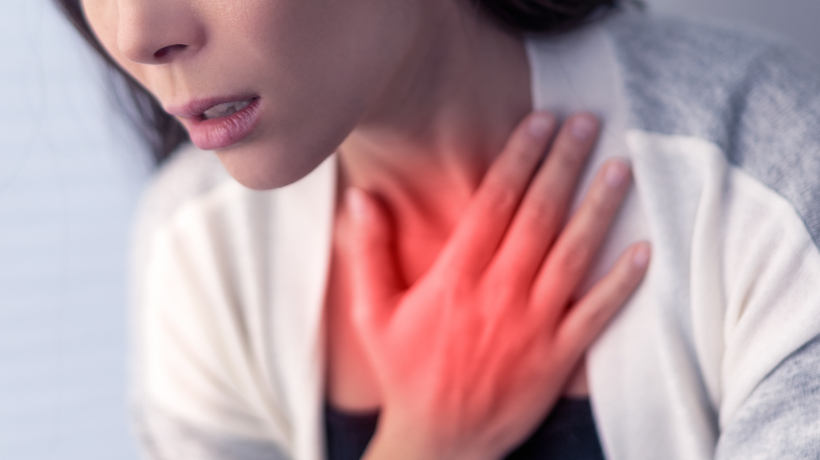Shortness of breath, also known as dyspnea, is often described as a tightening sensation in the chest area. You may find yourself having difficulty breathing or or feel like you are suffocating.
According to Mayo Clinic, sometimes strenuous exercise, extreme temperatures, and obesity can cause transient shortness of breath, though it could also be a sign of a condition that requires urgent medical attention.
Most severe causes of shortness of breath could be due to heart or lung conditions. Because your heart and lungs transport oxygen and remove carbon dioxide, problems with either organ can affect your breathing.
Causes of Shortness of Breath
Sudden onset of shortness of breath, according to the Mayo Clinic, can be the result of:
- Anaphylaxis (a severe allergic reaction)
- Asthma
- Carbon monoxide poisoning
- Excess fluid around the heart
- COPD (chronic obstructive pulmonary disease)
- Coronavirus (COVID-19)
- Heart attack
- Heart rhythm problems
- Heart failure
- Pneumonia
- Collapsed lung
- Blood clots in an artery in the lung
- Sudden blood loss
- Upper airway obstruction
Chronic shortness of breath that has lasted for weeks or longer can be caused by:
- Asthma
- COPD
- Deconditioning
- Heart dysfunction
- Interstitial lung disease
- Obesity
- Excess fluid around the lungs
Other problems that can cause difficulty breathing and shortness of breath include:
- Anemia
- Anxiety disorders
- Broken ribs
- Choking (first aid)
- Epiglottitis (swelling of the “lid” of your windpipe)
- Foreign object inhaled (first aid)
- Guillain-Barre syndrome
- Kyphoscoliosis (a chest wall deformity)
- Myasthenia gravis (a condition causing muscle weakness)
When to See A Doctor
If your shortness of breath affects your ability to function, seek medical attention immediately. This is especially true if it is followed by chest pain, fainting, nausea, a bluish tinge to lips or nails, or a change in mental awareness. These other symptoms may be a sign of a heart attack or pulmonary embolism.
You should see a doctor if your shortness of breath is followed by swelling in your feet or ankles, trouble breathing when lying flat, high fever, chills, coughing or wheezing.
You can reduce your chance of conditions that cause shortness of breath by quitting smoking, avoiding toxic chemicals and extreme temperatures, exercising regularly, and being sure you take all medications prescribed to you by a doctor.
For more information on shortness of breath, visit www.Mayoclinic.com.



